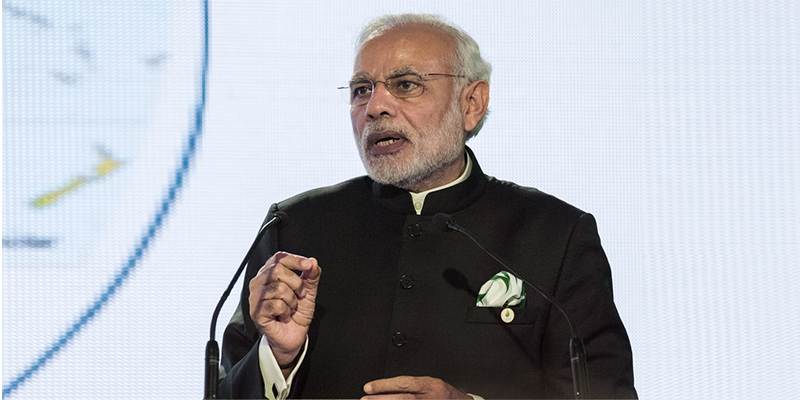[TC-I Changemaker]: Waste Ventures looks to empower India's trash collectors
Friday July 02, 2010 , 7 min Read
The ThinkChange India staff is committed to providing our readers with interviews with people we believe are at the brink of something special but have for the most part been overlooked by the mainstream media. Readers will be able to see other conversations under our TC-I Changemakers tag.

In this edition, TC-I Changemaker features Waste Ventures, a company looking to fundamentally alter the way municipal garbage gets collected, processed and disposed of and improve the lives of the workers doing the dirty work (Follow them on Facebook and Twitter). Waste Ventures is currently located in Bihar, but is aggressively looking to expand to other areas in India and even beyond. TC-I’s Vinay Ganti spoke with Parag Gupta, the founder of this organization to understand better their goals. Waste Ventures is currently competing in Myoo’s Beat Waste Challenge, so if you like what you read here, please support them there as well.
What exactly does your organization do?
We incubate and invest in solid waste management companies owned and operated by waste pickers. We provide them with the tools and knowledge to environmentally process garbage – recycling inorganic waste, composting organic waste, and earning carbon credits in the process. The result is a better wage for the waste picker, less garbage in the city, fewer greenhouse gas emissions, and a profit margin 20x greater than the current paradigm of simply dumping waste. We will thus harness the power of commercial markets to scale the social and environmental impact.
Why start this? What personally drove these entrepreneurs to start this?

I have dedicated my life to building market-based solutions to global poverty and have been doing so thelast eight years. Formerly, I served as Associate Director at the Schwab Foundation. Quite honestly, I grew a bit weary of social entrepreneurship as a panacea. The movement is growing but so are problems. To meet the need, we need to grow big fast. During my tenure conducting due diligence on social entrepreneurs all over the world, I saw a burgeoning solid waste management social entrepreneur movement that was still rooted in NGO roots. However, I recognized the feasibility of creating an entire commercially-viable sector that could both uplift waste pickers, the bottom rung of society, and also solve the largest municipal epidemic we face – garbage. So I have embarked on a journey to build the globally adaptable model, work with government officials to make environmental processing easier.
What do you think is lacking in the sector of your organization’s interest in spite of your intervention?
Great question – we need a lot more champions in government who would like to join us in moving the entire solid waste management sector from dependency on municipal payment to one that generates its income from commercial sources producing and selling recyclables, biofertilizer, and carbon credits. Right now, many municipal contracts surprisingly don’t allow for composting or recycling even if someone wanted to do so. What isn’t explicitly forbidden is dis-incentivized as municipalities pay by volume dumped which creates a perverse incentive not to process any waste but take it straight to the dumpsite.

Also, as more investors invest in waste picker corporations and more corporations adopt our environmentally friendly method of processing waste, the entire sector will become more efficient and familiar – attracting more talent, capital, and ideas. This is why at Waste Ventures our goal is to build the sector – not just our organization.Who are the founders and management? What do they do?
I previously was Associate Director at the Schwab Foundation creating programming at the World Economic Forum around social entrepreneurship and the Base of Pyramid. Prior, I had created another social venture. My background is in management consulting to Fortune 500 Companies, social entrepreneurs, and foundations. My board consists of luminaries including Geoff Davis, former CEO of Unitus, a microfinance accelerator, Harish Hande, founder of Selco, and Pamela Hartigan, Director of the Skoll Centre for Social Entrepreneurship at Said Business School, Oxford.
How is it funded?
Waste Ventures is a hybrid organization with two independent entities: the not-for-profit builds the market and receives a subsidized fee from the organizations we work with (usually waste picker NGOs) to ensure they have a vested interest in our intervention. The not-for-profit also receives some revenue from projects it creates (like a compost plant). Finally it receives grant support from the for-profit entity. The for-profit entity is a holding company that takes a minority stake in waste picker corporations and also a small percentage in intermediating biofertilizer and carbon credits produced by the waste picker corporations and connecting them to larger markets.
How do you measure your effectiveness?
We have stringent measures for social, environmental, and financial. Our social metrics include livelihood increase, life expectancy increase (from wearing protective gear), and decrease in persecution by authorities. Environmentally, we decrease garbage by 80% through processing, reduce half a ton of greenhouse gas for every ton of organic waste we compost. Financially, we measure both the Return on Investment, the IRR, and also more broadly, how much funding is being invested in environmentally processing emerging market waste.
Assuming this problem exists in similar forms throughout the world, what unique challenges do you face in fighting it here in India?
Unique challenges include tough biofertilizer markets. India subsidizes chemical fertilizer making it difficult to penetrate with bio-fertilizer. This is both a government policy challenge and a farmer mindset challenge – even though the biofertilizer our waste picker corporations will produce decreases dependency on chemical fertilizer by 25% and increases land productivity by 30%!
How do you intend to scale this model going forward? What are the future goals/plans for the venture? 1 year out; 3-5 years out; 10 years out?
In a year, we look forward to continuing to grow our India operations but also expand to other emerging markets. In 3 – 5 years, we hope to have successfully brought in pure-commercial investors into the Base of Pyramid solid waste management sector around the world. In 10 years, Waste Ventures will be working in creating waste picker corporations throughout emerging markets and we will have successfully created the next microfinance sector in terms of scale and reach.
What criteria do you use to identify partners/beneficiaries? (This is a useful question for the readers who are also SE’s and actively looking for partners/know a potential beneficiary)
We work with waste picker organizations that have created collectives of waste pickers and have a relationship with the government in at least understanding the external situation (current contractors in the city, garbage profile, etc). We also work with urban social entrepreneurs that are interested in creating a waste picker corporation and have the government and community ‘social capital’ to do so. In partnering with funders, we can work with grant makers and investors in finding the right opportunity with us or our partner waste picker organizations.
If some one else is starting off on your own sector of work, what advice do you have for him/her? It can be specific to your sector of intervention and in general, so that he/she doesn’t have to learn the hard way.
Find a good lawyer and a good bank so you can set up your institution the right way right away. Don’t go down the path alone – find a good local partner that can fill in gaps in your knowledge. Similarly, bring good people on as soon as possible.









![[Funding alert] InnoVen Capital invests Rs 25 Cr in consumer electronics startup boAt](https://images.yourstory.com/cs/2/11718bd0-2d6d-11e9-aa97-9329348d4c3e/Image55f31563363798309.jpg)
![[Startup Bharat] This Udaipur-based jewellery startup’s silver accessories are worn by Madhuri Dixit, Mouni Roy](https://images.yourstory.com/cs/2/79900dd0d91311e8a16045a90309d734/Startup-Bharat3-1596602882706.png)